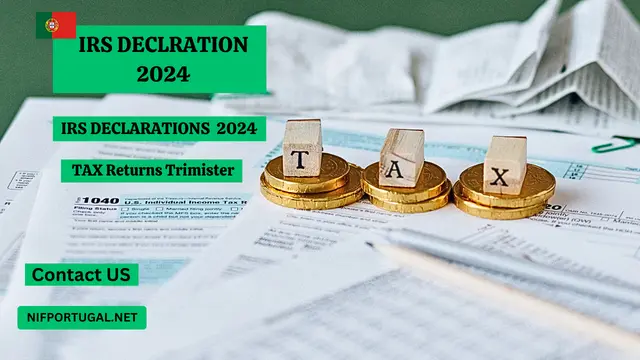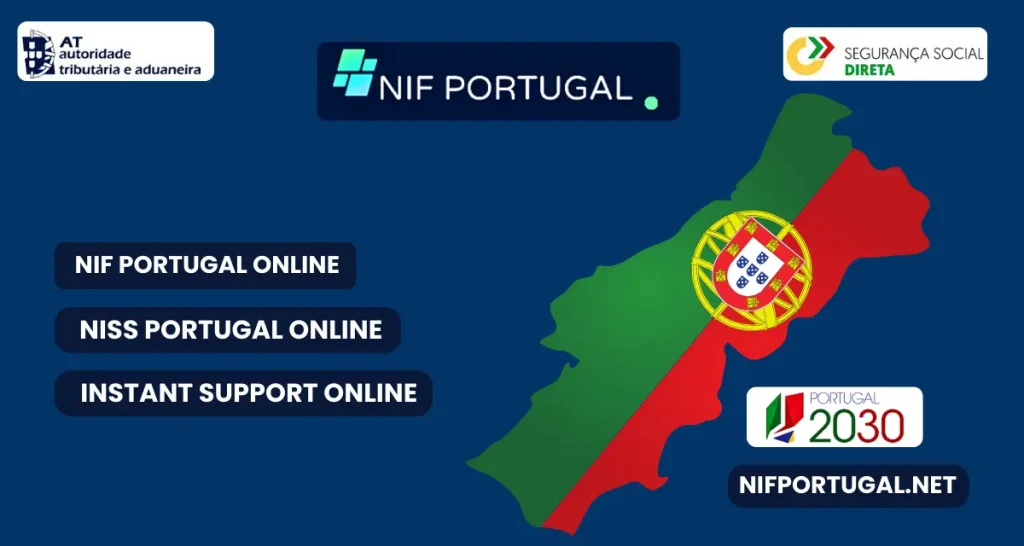Taxes In Portugal: The Complete Guide for Expats for 2024
In light of its reputation for providing a simple and advantageous tax structure, Portugal has grown in popularity as a destination in Europe among those looking for a more favourable financial environment. Portugal’s dedication to streamlining its tax laws has made it an appealing choice for individuals seeking to improve their economic circumstances.
Other than that, plenty of factors, including the climate and overall environment, attract people worldwide. Concerning all this, today I chose to talk about the very famous but unfamiliar topic, “taxes in Portugal for foreigners.” In this article, I will address all the minor and major details without wasting a minute!
Who Has to Pay Tax in Portugal? – an Overview
Before you start any paid work in Portugal, you must register as a taxpayer if you are relocating there. To become a taxpayer, you must register. To do this, you must receive an NIF (Numero de Identicacao Fiscal), which you may do by contacting your local tax office. If you don’t know about this, you can visit our site for a complete guide about NIF and our services.
People Also Read?
Portuguese income tax is applied to your global income if you are observed as a tax resident in Portugal’s tax haven. This revenue may come from capital gains, rental income, and salaries. Other than that, here is a breakdown for you:
The Portuguese Tax System for Foreigners – in Detail Guide
The Portuguese tax system is divided into further different scenarios. So, keeping all of them in mind, better let’s talk about these in detail here:
1. Non-Habitual Resident Program
By providing them with advantageous tax treatment for a ten-year term, Portugal’s Non-Habitual Resident (NHR) program is a special tax regime intended to draw in immigrants. Those who have not been a tax resident of Portugal for the preceding five years are eligible to apply for the NHR program under NHR tax Portugal. It is especially appealing to seniors and professionals seeking a tax-friendly getaway.
Talking about the period, for ten years in a row, the NHR program offers tax advantages. Those who meet the requirements can benefit from a more favourable tax system on particular income categories during this time.
As per rates, the eligible persons can get a flat income tax rate of 20% on some income originating from overseas sources under the NHR scheme. This comprises pension income and income from bonuses, revenue, and specific professional sources involving high-value activities.
People Also Read?
To be admitted into the program, people must complete the application process, which includes requesting Portuguese tax residence. Registration with the Portuguese tax authorities and filing the required paperwork to establish eligibility are necessary. Furthermore, the NHR program heavily relies on Portugal’s vast network of double taxation agreements with several nations.
2. Portugal’s Value Added Tax (VAT):
Portugal imposes a consumption tax on the sale of products and services known as value-added tax, or VAT. It is meant to be gathered at every point in the production and distribution and is an essential component of the nation’s tax structure. In Portugal, many products and services are subject to VAT.
This covers material things, electronic devices, and different services from companies. Portugal has several VAT rates to distinguish between various products and services. The usual rate is 23%; however, specific categories like food, lodging, and particular cultural and recreational activities may be subject to lower rates of 13% and 6%.
3. IRS (Personal Income Tax)
Portugal has progressive personal income tax rates ranging from 14.5% to 48%. The NHR scheme offers a limited rate of 20% for qualified persons on qualifying foreign income. Moreover, the IRS typically fills out the forms annually from 1st March to 31st June. If you want to fill out the IRS for 2023 starting from April 1st, 2024, please contact us on our website. Our charges to fill out the IRS start from €25.

4. Business Tax
Companies that operate in Portugal are subject to corporate tax. There are lower rates for smaller businesses and specific income categories than the introductory % corporate tax rate of 21%.
5. Wealth-Tax
Currently, and very surprisingly, Portugal ensures they don’t have a wealth tax. This implies that people are not taxed according to their whole wealth or assets, including foreign residents of Portugal.
6. Property tax in Portugal (IMI)
A yearly tax known as the Import Management Incoterm (IMI) is imposed on real estate properties’ taxable value. Each town sets its tax rate, which can be between 0.3% and 0.45%. The tax authorities determine the commercial value of real estate, which is the basis for assessment.
Why Do You Need a Portuguese Tax Specialist?
For several reasons, selecting a reliable tax assistance provider in Portugal is crucial, particularly for international clients. Portugal’s tax laws can be complex, be it Portugal’s capital gains tax or any. So, if you don’t know them well, you could make mistakes or lose out on opportunities to save money. Reputable organizations are well-versed in these regulations and can provide situation-specific guidance.
People Also Read?
We at NIF Portugal can assist you in identifying methods of reducing your tax liability, such as using any applicable special programs for foreign nationals. We stay current on tax code modifications so you continue operating legally. Although managing the tax paperwork might be a headache, a reputable firm can complete it swiftly and ensure everything is in order.

As a competent agency, we communicate with the tax authorities on your behalf and assist in resolving any issues. NIF Portugal ensures that your taxes are completed on schedule and accurately and protects your personal information. Selecting a top-ranked agency offers comfort and lets you concentrate on your priorities while the professionals handle your taxes. NIF PORTUGAL is the name of a hassle-free and smoother taxation agency!







